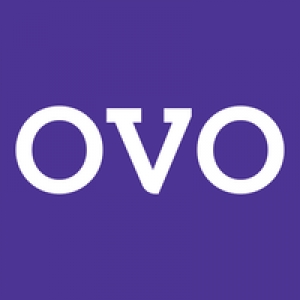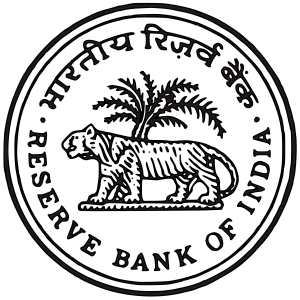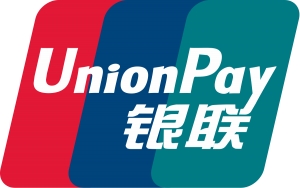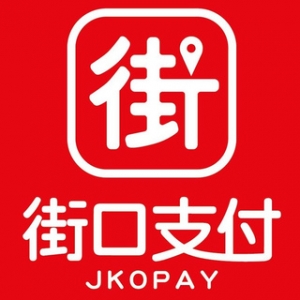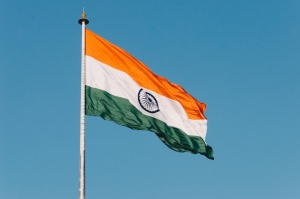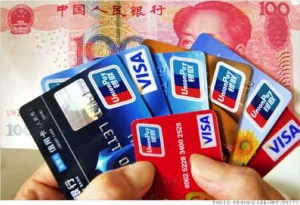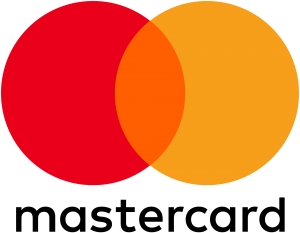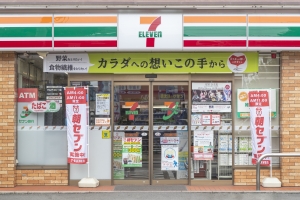When it comes to Indonesia's digital wallets, Go-Jek's Go-Pay captures many of the headlines. After all, Go-Jek is Indonesia's most prominent unicorn, valued at US$9-10 billion. It's battling Singapore's Grab across Southeast Asia, burning piles of cash as investors rush to join the next round of fundraising. Speculation about a Go-Jek IPO is mounting.
Yet Indonesian consumers prefer a different digital wallet, according to local research firm Snapcart. Data compiled by the Indonesia-based company show that Ovo, backed by Grab and the Lippo Group, is the top Indonesian mobile wallet by a wide margin. Ovo holds a 58% market share, compared to Go-Pay's 23% and Emtek Group and Ant Financial's DANA, a distant third at 6%.
India has one of Asia's most vibrant fintech ecosystems, highlighted by payments unicorn Paytm with a valuation of US$10 billion. In the first quarter of the year, the subcontinent attracted the most VC fintech investment of any country in Asia, beating out digital finance juggernaut China.
Given the excitement surrounding India's fintech scene, it is easy to overlook cash's continued paramountcy in the Indian economy, accounting for 95% of transactions. Indeed, cash not only remains the primary payment method in India, its use is growing. The reason is straightforward: Cash is convenient - especially considering India's large informal economy. The fintech ecosystem must penetrate far deeper into the Indian economy before it can begin to displace cash.
The Philippines is steadily adopting digital payments as part of a state-led drive to boost financial inclusion. The number of active e-wallet accounts in the country rose 22% annually in 2018 to reach 33 million, according to data compiled by Bangko Sentral ng Pilipinas (BSP), the Philippines' Central Bank. E-wallet growth last year edged out credit card growth, which rose 18% to 9.4 million users compared to a year earlier.
The Philippines is poised to reduce its dependency on cash - which accounted for 99% of transactions in 2018 - thanks to high smartphone penetration, strong demand from a large unbanked population and consumer willingness to bank digitally. Additionally, with their low barriers to entry, digital wallets are a good way to support financial inclusion.
WhatsApp has moved one step closer to launching its payment business in India by setting up local data storage facilities, according to India's The Economic Times. As a condition of market entry, the Reserve Bank of India (RBI) requires digital payment providers to first set up local data storage facilities and then submit an audit report to the central bank. Market insiders say that WhatsApp Payments is expected to go live with its Unified Payments Interface-based service with ICICI Bank. Services through Axis Bank, HDFC Bank and SBI are likely to follow, they say.
The Vietnamese mobile wallet Vimo and point-of-sale provider mPOS are merging to form a new entity called NextPay, which will seek to raise US$30 million to expand domestically and elsewhere in Southeast Asia. NextPay's objective is to combine online and offline solutions into one with Vimo as the online channel and mPOS as the offline one.
There must be room in Asia for one more super app. Ride-hailing giants Grab and Go-Jek are going that route, determined to show investors that they're more than glorified high-tech taxi services. The Philippines' Yuchengco Group, a family-owned conglomerate with businesses ranging from banking and insurance to travel, healthcare and funeral services, is now throwing its hat into the super app ring, with a very different approach. Yuchengco intends to replicate its offline services online within a single app: It sounds like reverse O2O, in the sense that services which were once offline are about to go online.
Paytm’s payments bank (PPB) has become India's first profitable business of its kind, posting a net profit of Rs19 crore ($2.7 million) in fiscal year 2018-19. PPB says that it accounts for nearly a third of all mobile banking transactions in India and processes over Rs3 lakh crore worth of digital transactions per year, second only to India's top lender State Bank of India. With over Rs 500 crore deposits in its savings account, PPB is the top payments bank in India in terms of deposits.
China's UnionPay can't beat them, so it might as well join them: The payments giant is entering a partnership with UK-based fintech Tribe Payments that will allow banks and fintechs to issue its credit cards in Europe from July. Facing intense competition from internet finance titans Alipay and WeChat Pay at home, UnionPay is keen to drum up new business abroad. What better way than to cooperate with a rising British fintech?
Uber's recent initial public offering underwhelmed investors, as the ride-hailing juggernaut raised $76 billion instead of the $120 billion that had been once expected. Since the IPO, Uber has lost about $5 billion in market capitalization. Analysts say that it could lose another $1 billion before the year ends.
The main problem for Uber is simple: Its core ride-hailing business isn't profitable. For an early-stage startup, profitability isn't essential. But Uber has been around for a decade, and it's still in the red. In 2018, it posted a net loss of $1.8 billion. Chances are high that the company will not make a profit this year either.
In Taiwan, Japanese messaging app Line has led the ascendant mobile payments market on the back of its strong brand cachet. Among Taiwan's population of 23 million, there are 20 million Line users. More than 6 million Taiwanese have its payment app Line Pay on their handsets. Line is probably the only app with a shot at becoming the WeChat of Taiwan.
Pi Pay is the largest digital wallet in Cambodia's nascent fintech space, having processed 7.5 million transactions of $170 million as of March. The company has 250,000 users and 3,500 merchant partners.
Founded in mid-2017, Pi Pay is unique among Cambodia's fintechs for its strategic partnerships with traditional financial institutions and internet financiers alike. Among its key partners are Alipay, WeChat Pay and Korea's KB Kookmin Bank. The tie-ups with Alipay and WeChat Pay allow Pi Pay to tap the sizable Chinese tourist market in Cambodia. By 2020, Cambodia expects roughly 2 million Chinese visitors per year. Partnering with Kookmin Bank gives Pi Pay access to the 76,000 users of the banks' digital platform Liiv in Cambodia. Last year, Liiv processed overseas wire transfers of $17 million and extended $19 million in loans.
Alipay and WeChat Pay have been on a torrid expansion streak, setting up shop everywhere from Southeast Asia to Middle America. The digital wallets of Alibaba and Tencent seem intent on taking their battle for the wallet share of Chinese consumers global.
In Nepal, which is popular with Chinese visitors, the fintech giants got a little ahead of themselves. By facilitating payments by Chinese tourists in renminbi at Alipay and WeChat points of sale, the companies allowed the transactions to bypass the Nepalese banking system in violation of local law and prompted a stern rebuke from Nepalese regulators.
India's fintech giants Paytm and Ola are both entering the credit-card business, a move that should boost cashless transactions in an ascendant payments market estimated to reach $1 trillion by 2023. Digital wallet Paytm is cooperating with Citibank while ride-hailing juggernaut Ola is working with State Bank of India and Visa. Credit cards could offer Paytm a way to better compete with the U.S. tech giants who recently entered India's payments segment. For Ola, credit cards are a new way to generate revenue from its huge userbase. Visa and SBI hope to tap Ola's massive userbase to grow their own customer pool.
Ironically, both fintech giants are turning to a traditional financial platform to grow their businesses. Perhaps there is some truth after all to bromides about how financial incumbents and upstarts have more reasons to work together than compete with each other.
The Philippines is preparing to implement new legislation for mobile payments as it steps up efforts to digitalize its financial system. In a statement, the Philippines' central bank said that the National Payment Systems Act (NPSA) would support the development of a mobile payment system that can serve as the "third pillar of central banking." The Bangko Sentral ng Pilipinas (BSP) sees such as a system as crucial for controlling systemic risk and driving sustainable economic growth.
Manila aims to create a level playing field for incumbents and fintechs under one overarching set of payments regulations, officials say. The Duterte administration believes the NPSA will create the right conditions for healthy competition in the finance sector, they say.
As a near developed country with high financial inclusion, Malaysia is an outlier in Southeast Asia. Like its rich neighbor Singapore, Malaysia's need for fintech is less pressing than poorer underbanked countries like Indonesia, the Philippines, Cambodia or Myanmar. Fintech platforms can facilitate smoother banking for Malaysians, but aren't viewed as a necessity in the country yet. After all, 92% of the population has a bank account and credit cards have a strong foothold.
Axiata Group's Boost digital wallet, established in early 2018, is one of the first Malaysian fintechs to have a demonstrable impact on the country's financial system. Boost's executives say that it is Malaysia's premier digital wallet, with 4 million registered users and 80,000 merchant touchpoints. From January-December 2018, Boost users' average monthly transactions grew fourteenfold, the company says.
The WeChat super app is perhaps the best example of a made-for-China digital ecosystem that struggles beyond the Great Firewall. It's essential in China for communication with colleagues and friends, ride hailing, day-to-day purchases and online banking. WeChat puts all that and more at your fingertips - and it's not like you have a choice anyway. The competition is blocked. But outside the Chinese mainland - where there are lots of other messaging apps - WeChat's only good for one thing: keeping in touch with people back there.
One of the great ironies about China for multinational firms is that they feel they have to be there, but the gatekeeper doesn't always let them in. This paradigm is especially evident in the financial services sector, where foreign firms control less than 2% of the market 18 years after China entered the World Trade Organization and promised to dismantle trade and investment barriers.
Singapore is an ascendant digital finance hub, in 2018 attracting $365 million in fintech investment. That investment was double the amount raised a year earlier. Despite its small size, the city-state is still the No. 5 fintech market in APAC by funds raised.
Japan is the world's No. 3 economy and known for its tech prowess, yet the Japanese people prefer cash over other forms of payment. Just one in five transactions in Japan are cashless. Some analysts say that Japan can learn from its giant neighbor China when it comes to cashless payments. In less than a decade, China has gone from cash reliant to nearly cash free. In 2017, nearly half of the world's digital payments were made in China.
It wasn't so long ago that China's tech firms were panned as second-rate copycats. The best example might be Baidu, the search giant that is often less effective than Google in Chinese-language searches.
Tencent's WeChat messaging app changed the equation, establishing a mobile-internet ecosystem that is the envy of its global competitors. WeChat has over 1 billion monthly users (mostly in mainland China) and is the No. 5 most used app globally. Its payment platform has expanded to 25 countries. Thanks in part to WeChat business Tencent had a strong third quarter in 2018. Revenue reached $11.7 billion, up 24% over a year earlier, while profits rose 20% year-on-year to $3.4 billion.
If your competitors are there, do you need to be there? Mastercard thinks so. Along with Visa and American Express (AmEx), it is trying to gain a foothold in China following Beijing's announcement in 2017 that U.S. credit-card companies could apply for licenses. In late 2018, Beijing approved the first such bank card transaction clearing license when it signed off on a joint venture between AmEx and Chinese fintech firm Lianlian.
Mobile payment adoption is accelerating in Thailand as the finance sector moves to digitize. Like its Asean peers, Thailand is keen to use digital finance to boost an underdeveloped banking sector. Without the entrenched incumbents of developed economies, Asean countries tend to view digital finance as a greater opportunity than threat. Even highly advanced Singapore has embraced fintech, with an eye towards becoming Southeast Asia's fintech hub.
In Japan, cash is still king. Indeed, the Japanese have a fondness for physical currency that has ebbed amongst their neighbors. Cash accounts for 80% of transactions in Japan, compared to 40% in China and 10% in South Korea.
Facebook is reportedly developing a cryptocurrency that will be backed by the U.S. dollar for the Indian remittances market. Known as a "stablecoin," the digital currency will allow users of Facebook's WhatsApp messaging app to transfer money. Stablecoins have many applications besides remittance, including peer-to-peer payments, the purchase of goods and services online, and trading of digital currency. Facebook's digital currency is at a nascent stage and won't be released for some time, according to a December Bloomberg report.
Years ago, traditional POS machines only provided basic processing that were more convenient than cash transactions, but provided little help when it came to sales analysis. Smart POS started gaining traction in 2014 and grew rapidly as merchants juggled many different payment channels. A smart POS can process QR code, bank card, Quick Pass, as well as analyze business data, maintain membership details and combine online–offline sales. In December, UnionPay and Alipay both launched new acquiring products.
Double 11, the biggest e-commerce shopping festival, had another amazing result in 2018. On November 11th 2018, total online sales in China reached RMB314.2 billion (USD45.2 billion) in one single day.
China's bank card market is large. Over 9 billion domestic payment cards will be in use by the end of 2018, a nearly 35% increase from the 6.7 billion in 2016. Even though the market is replete with card providers, the clearing business has been always dominated by the only one licensed clearing institution, China UnionPay (CUP), for both domestic and cross-border RMB transactions. That is, until now.
On September 18th 2018 the MAS launched the Singapore Quick Response Code (SGQR). Within the next year, 27 different mobile wallet providers including PayNow, NETS, GrabPay, Liquid Pay, and Singtel Dash will incorporate the new standardised code. The SGQR is the first of its kind globally and represents a significant change to the e-payment landscape. Interoperability is seen as a key infrastructural requirement for mobile payments and will have several impacts on new and incumbent firms in the market.
During the Internet Security Summit in Beijing on August 21st, Ant Financial announced the official upgrade for the security control of its digital payment platform – Alipay. The more secured process is achieved through what is called a 'Delayed Payment' (DP) function.
China's tech giants are increasingly focused on positioning themselves as technology providers rather than financial services providers. A recent 3-second blockchain remittance from Hong Kong to the Philippines, was supported by Alipay HK and Philippine's GCash, cleared by Standard Chartered. Caifu Hao, a wealth management platform launched by Ant Financial, opened their AI-functioned investment tools to fund companies. Tencent recently signed contracts with a few banks to provide a financial cloud structure for acquiring and managing growing clients.
More...
June 25th 2018, Ant Financial launched its E-wallet cross-border remittance service based on blockchain technology. Customers using Alipay HK can transfer money in real time to another E-wallet Gcash based in the Philippines.
Ant Financial was valued at $150 billion recently, making it the biggest unicorn globally. As it completed its most recent $10 billion financing, the company has made it clear that Ant’s future is being a tech provider to the financial industry.
China's banks have lost significant market share to fintech companies like Ant Finance and Tencent, especially in the mobile payment space, which the fintech companies have used as a basis to move into other market segments such as online lending. Banks have been distanced from consumers and there are concerns that people do not need banks any more. Are things really that bad?
On April 7th, 2018, Alibaba announced an investment of 4.5 billion RMB (7.1 bn USD) to Huitongda, showing the intention to develop business in the rural areas of China. They will cooperate on supply source, logistics, technology and life services.

